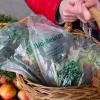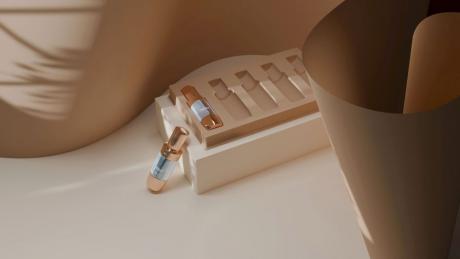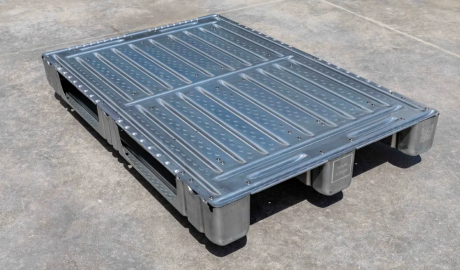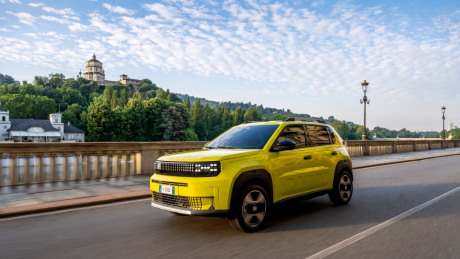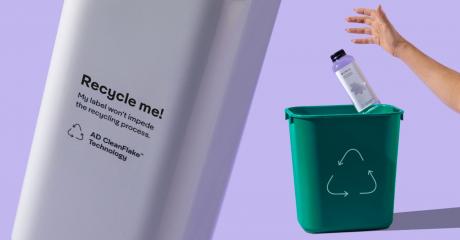Cellular materials innovator, Zotefoams - which celebrates its centenary this year - announces ground-breaking results from its recently commissioned Life Cycle Analysis (LCA) of its circular mono-material carton packaging, ReZorce.
Not only does ReZorce have a 50% lower global warming potential compared to conventional LPB cartons, it also takes 11 times less water to produce and five times less energy to produce, fill, and transport.
ReZorce Circular Packaging for beverage cartons is a fully recyclable mono-material, with barrier properties that meet or exceed all food industry standards and is the first viable alternative to composite barrier packaging. The independent LCA compared three types of ReZorce - incorporating various levels of recycled HDPE - with traditional multi-material LPB to demonstrate that, functionally and aesthetically, ReZorce cartons perform the same as, or better than, traditional beverage cartons.
The results show that it takes five times less energy to produce, fill, and transport a ReZorce carton, compared to conventional liquid packaging board (LPB) cartons. ReZorce requires 11 times less water to produce and - provided it's recycled - has a 50% lower global warming potential overall.
ReZorce is based on a proprietary microcellular foaming technology, sandwiching foamed layers with solid ones to optimise barrier performance and produce the same performance in folding as conventional beverage cartons. As well as being recyclable via post-consumer waste collection, ReZorce can incorporate up to 100% recycled content (if food grade recycled polymer is available). The HDPE material outperforms current liquid beverage carton technology, achieving sustainable clarity without compromising look, feel or performance; solving the food and beverage packaging industry's biggest sustainable challenge: multi-material cartons.
Zotefoams challenged The LCA Centre, independent specialists in forensic packaging life cycle assessments, to test ReZorce and compare its environmental impacts to traditional multi-material LPB currently on the market. Three types of foamed high-density polyethylene ReZorce cartons were evaluated (incorporating 12.5%, 25% and 50% recycled content) as well as one LPB container with layers of paperboard (72.5%), polyethylene (24%) and aluminium foil (3.5%), each carton holding 1L of apple juice.
The LCA's key elements were to assess the global warming potential (kgCO2eq), water resource (m3) and cumulative energy demand (MJ-eq) in four different scenarios from cradle-to-gate and then end-of-life stage (incineration, recycling, or a mixture of the two). The results were impressive - ReZorce has a lower global warming potential in all scenarios, except in the scenario that both packages are incinerated.
Dr Alan Campbell, Technical Director, The LCA Centre says, "The recycled ReZorce container has the potential to offer an environmental benefit, in the form of a GWP lower than alternative packaging options."
The LCA data was also peer reviewed by Dr Leigh Holloway of Eco3, an environmental and innovation consultancy. Through his association with the highly regarded IFEU Institute in Germany, Dr. Holloway has been involved in many peer reviews of liquid packaging board products, including one from a leading producer of multi-material (aseptic) cartons.
Neil Court-Johnston, VP Strategy Emea for Zotefoams says, "We're thrilled to announce the results of our recent Life Cycle Analysis; the figures speak for themselves. This is an exciting time for Zotefoams and for ReZorce; we've invested $1 M in a pilot facility in the US, which will enable brand owners and retailers to fast-track trials, enabling implementation of the platform technology ahead of the impending legislative deadlines.
"We're collaborating with the New Plastics Economy and its HolyGrail project - using chemical tracers and digital watermarks to track plastic waste and improve sorting of post-consumer packaging as well as recycling rates," Neil continued. "Manufacturers and brand owners recognise that current technology cannot meet impending sustainability targets and we are already collaborating with likeminded partners. Beverage cartons are just the beginning."


